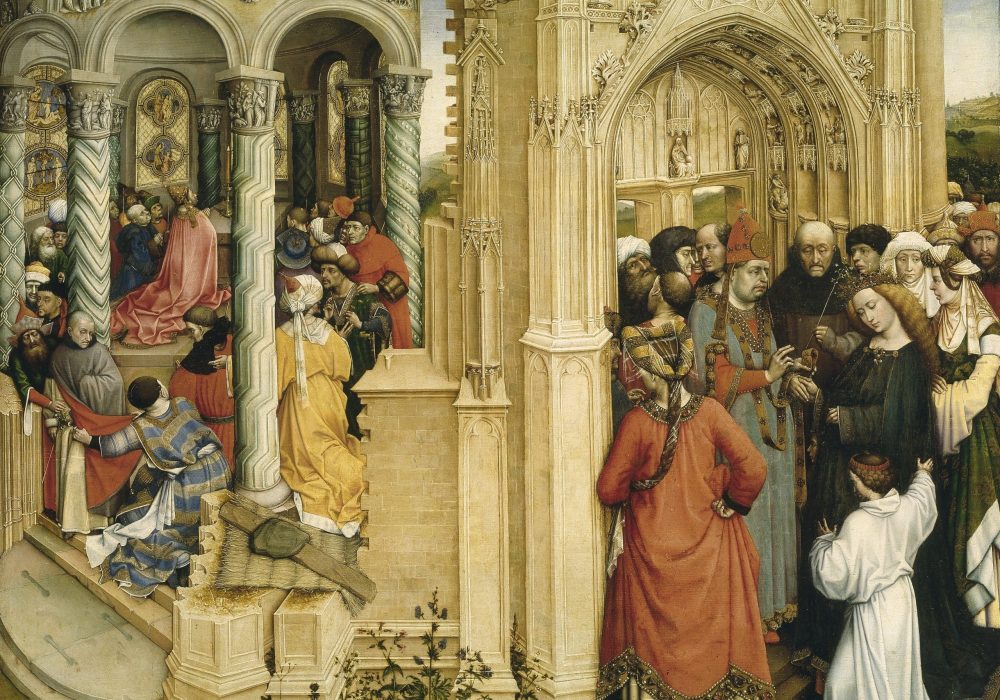Open to current graduate students at the University of Chicago. Participants can come to whichever sessions they choose. Others interested in participating should contact Aidan Valente at valenteaidan@uchicago.edu. Books and drinks will be provided. This will be held at the LCI Residence (5554 S Wooodlawn Ave).
“Beauty is in the eye of the beholder.” – This well-worn aphorism suggests that what we find “beautiful” relies only on subjective taste; and yet, many would agree in finding a Gothic cathedral obviously more beautiful than a brutalist library. Is there, then, an objective component to beauty, and if so, where and how can we locate it?
Philosophers and theologians of the Middle Ages argued for the objectivity of beauty, but they did so in diverse ways. This reading group will follow Umberto Eco’s introduction to medieval aesthetics (in the scholastic context and especially the thought of St. Thomas Aquinas) and will explore both Eco’s sources and his interpretation of medieval attitudes toward art and architecture.
An optional session at the end of the course will take place at the Art Institute of Chicago to examine and discuss medieval art first-hand.
SCHEDULE:
This group will meet on Mondays (beginning Oct 7th) from 6:00pm – 7:30pm over dinner.
Oct 7: Preface, Introduction, and I: The Medieval Aesthetic Sensibility (19 pages)
Oct 14: II, Transcendental Beauty and III, The Aesthetics of Proportion (26 pages)
Oct 21: IV, The Aesthetics of Light and V, Symbol and Allegory (22 pages)
Oct 28: VI, Aesthetic Perception and VII, The Aesthetics of the Organism (19 pages)
Nov 4: VIII, Development and Decline of the Aesthetics of the Organism and IV, Theories of Art (21 pages)
Nov 11: X, Inspiration and the Status of Art and XI, Conlusion (19 pages)
A optional trip, free with a UCID, to the Art Institute of Chicago or Smart Museum will be planned to conclude the group.
A copy of Art and Beauty in the Middle Ages will be provided to all participants. The reading may be picked up at Gavin House (1220 E 58th street) during buisness hours at the start of the fall quarter.
The University of Chicago is famous for its graduate student reading groups, in which students pursue their own intellectual interests among friends in an informal setting. The Lumen Christi Institute supports this endeavor by sponsoring a number of graduate student reading groups each quarter. LCI provides space, hospitality, and books.
Reading groups cover the whole spectrum of ideas. Texts do not need to be explicitly Catholic, though we follow St. Paul’s injunction to attend to whatever is true, noble, right, admirable, and lovely (Phil 4:8). Groups follow LCI’s guiding principles, which…
-
Affirm the intellectual life as good in itself
-
Ask questions animated by the principle that “all knowledge forms one whole”
-
Transcend the ideological / political divide (i.e., programs should not be partisan in nature)
-
Welcome religious perspectives as part of the intellectual life (i.e., programs need not be theological in nature but conversations should be open to religious insights)
-
Nurture friendships, to support the pursuit of truth, beauty, and goodness (i.e., programs should have a social component)

